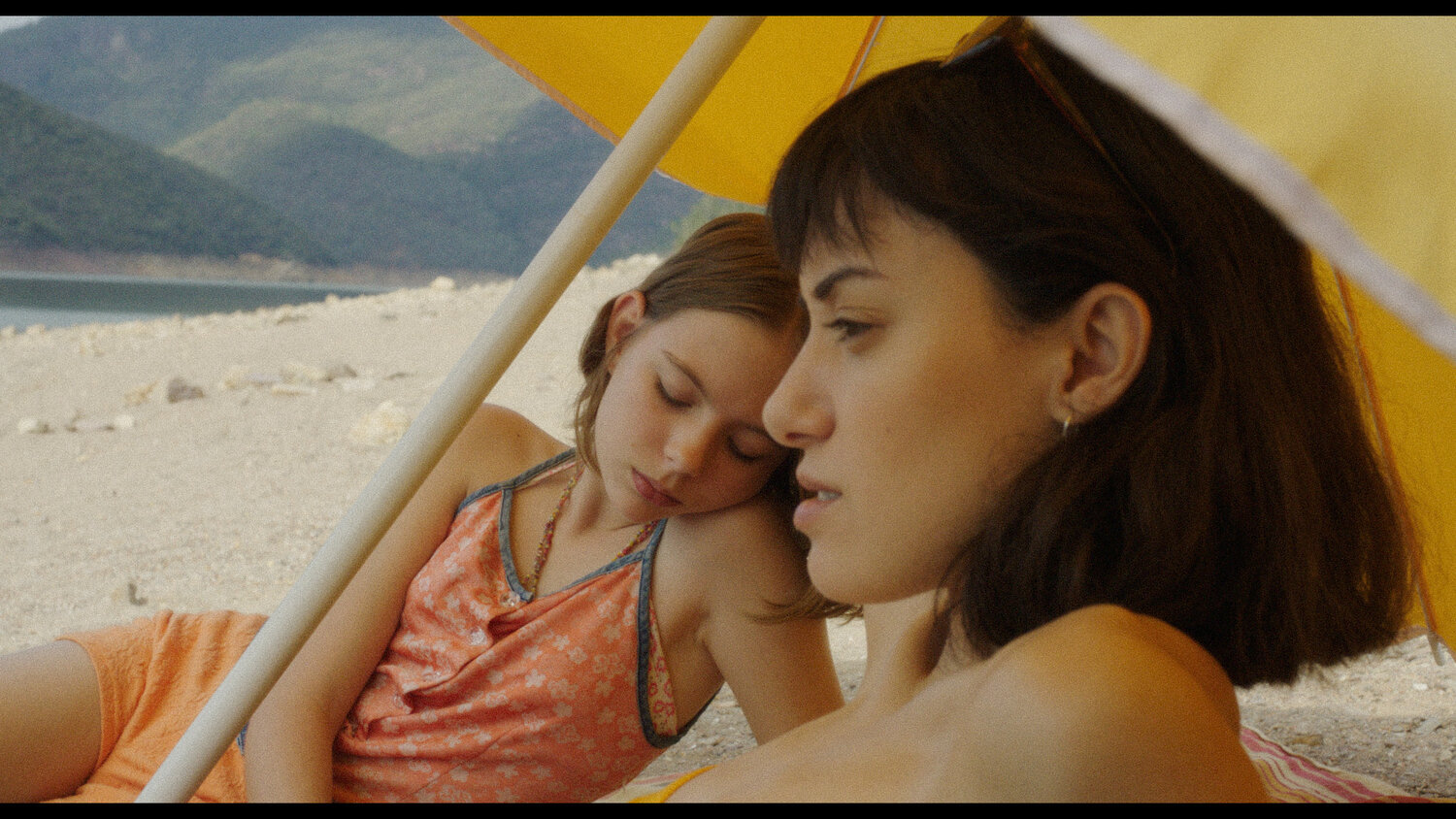FRIENDS AND STRANGERS
 Sunday, February 14, 2021 at 9:17AM
Sunday, February 14, 2021 at 9:17AM
Stars: Fergus Wilson, Emma Diaz, Victoria Maxwell, Amelia Conway and Greg Zimbulis.
Writer/Director: James Vaughan
Reviewed at International Film Festival Rotterdam 2021 (online).
Rating: ★ ★ ★ ★

Director James Vaughan achieves considerable success with his debut feature, the meandering, understated, ultimately rewarding Friends and Strangers, if only via the skill with which he imbues millennial mumblings with meaning and resonance. Vaughan has his able twenty-something cast communicate via the discordant verbal punctuations (‘like’, ‘um’, ‘D’you think...?’, ‘I don’t know’) synonymous with the generation, utilising the very un-cinematic cadence perhaps as best as can be.
Chief mumbler is Ray, played by Fergus Wilson in a characterisation that alternates between excruciating and endearing. Ray reconnects with Alice (Emma Diaz, nailing ‘fading tolerance’ in most of her scenes) upon her return to Sydney, ultimately inviting himself on a camping trip she has planned. These early scenes mostly consist of Ray not really listening to Alice’s attempts at conversation, with Alice gradually, if politely, distancing herself from him. Once at the campsite, she favours the insight of a pre-teen fellow camper Lauren (Poppy Jones; pictured below, left, with Diaz) over anything Ray offers.
The narrative rejoins Ray back in Sydney, moping about Alice’s rejection to the increasing frustration of his video production company partner Miles (David Gannon). They have a client meeting with waterfront McMansion owner David (a fun Greg Zimbulis), father of the bride (Amelia Conway), to prepare for the wedding shoot, as if a love-starved, self-obsessed minor-man could capture the essence of someone else’s most romantic day. Finally, Vaughan turns to an Allen-esque comical set-up, as Ray stoops to spying on Alice after a chance encounter.

The commentary he affords the solipsism of contemporary, well-to-do lives and their tendency towards introspection to the point of self-obsession has drawn comparisons to French New Wave great Éric Rohmer, particularly his late career work, A Summer’s Tale (1996). Rohmer would often focus on educated young adults and the world they populate, such as beaches, parks and lovely homes (so, Sydney).
Vaughan has generational malaise and middle-class white privilege in his crosshairs. Friends and Strangers (the title itself carrying Bergman-esque tones) may present as a loosely-structured echo of its lead character’s directionless wanderings, but that would do a disservice to the debutant director’s skill as an observational storyteller and satirist. (The influence of European masters extends beyond the cinematic greats; a lovely shot of a middle harbour bathing spot clearly reflects George Seurat’s iconic painting, ‘A Sunday Afternoon on the Island of La Grande Jatte’).
Opening credits play over artwork from Sydney’s colonisation, preparing the audience for a story in which the setting is as important as the characters. Vaughan’s Sydney is not sweeping shots of foreshore icons (the city skyline is occasionally glimpsed as background detail), but instead the Sydney of affectation - cafes, hairdressers, manicured parks and affluent homes. Just as notable is DOP Dimitri Zaunders expert framing of the ‘ugly beauty’ of big-city life - stacks of pallets jammed under an overpass, the jarring juxtaposition of historical masonry and modern steel beams of which Sydneysiders have become inexplicably tolerant.
We first meet Ray and Alice not on a park bench silhouetted against the Harbour Bridge, but leaning on a concrete barrier, struggling to connect over traffic noise and looking down upon (literally and figuratively) the boring minutiae of city life. It is an establishing sequence of a confident filmmaker, conveying thematic intent and character depth, and signaling Vaughan as a young director already in touch with his own film language.
 Australian film,
Australian film,  Film Festival,
Film Festival,  Independent,
Independent,  Rotterdam
Rotterdam 

